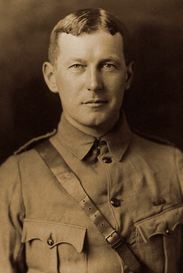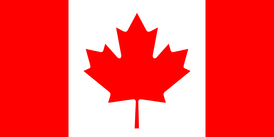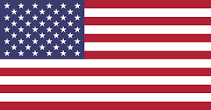
Our world has seen wars and heard rumors of war, but nothing has ever quite matched the horror of World War I. It all began on June 28, 1914, when a Serbian assassinated Archduke Franz Ferdinand in Sarajevo, Bosnia. It ended in "1918 on the 11th hour of the 11th day in the 11th month, the world rejoiced and celebrated. After four years of bitter war, an armistice was signed. The war to end all wars was over. The guns became silent in Europe." America did not enter the war until 1917, however, we had 117,000 soldiers killed and 204,000 wounded. The number of missing in action is debatable, but is fixed at 4,500 in some sources. This based on a total mobilization of 4,272,500 soldiers. On the other hand, the Austro-Hungarian Empire lost 4,820,000, 74% of their mobilized soldiers. Germany and Russia lost some 55% of their total mobilized force. Trench warfare, gas, and new weapons of warfare took their toll on soldiers of all nations.
On November 11, 1921 an unknown World War I soldier was buried at Arlington National Cemetery. In 1926, Armistice Day was recognized through a Congressional Resolution and became a National Holiday 12 years later. Shortly after Armistice Day was proclaimed, war broke out in Europe and the World saw the beginning of another World War. In 1954, President Eisenhower signed a proclamation designating November 11 ass Veterans Day.
"This day is not to honor war, but the sacrifice made by others for our freedom." Some Confuse Veterans Day and Memorial Day. Veterans Day is the day intended thank and honor those living men and women who served in our military, in peace and war. Memorial Day is set aside to honor those who made the supreme sacrifice. As a practical matter, we honor the living and dead on Veterans Day. To honor the American war dead, poppies are traditionally worn on Memorial Day. This tradition stems from a poem written by John McRae in 1915:
"In Flanders filed the poppies blow
Between the crosses, row by row,
That mark our place: and in the sky
The larks, still bravely singing, fly
Scarce heard amid the guns below.
We are the dead. Short days ago
We lived, felt dawn, saw sunset glow,
Loved and were loved, and now we lie
In Flanders Field."
John McCrae was a physician from Canada. He fought in the Boer War and returned to Canada to complete a fellowship in Pathology. He went to France as a Brigade Surgeon and Artillery Officer in Early 1915. While performing a burial service for Lt. Alexis Helmer, a friend, he was inspired to write "In Flanders Field." Rather than accept less hazardess duty behind the lines, Lt. Colonel McCrae stayed with his unit. In January 1918, he became ill with pneumonia, complicated by meningitis. Lt. Colonel McCrae died on January 28, 1918, and was buried with full military honors at Wimereux Cemetery, Boulogne, France. Now you know the rest of the story.
Remember to Thank a Veteran for their contribution to our Freedom.


